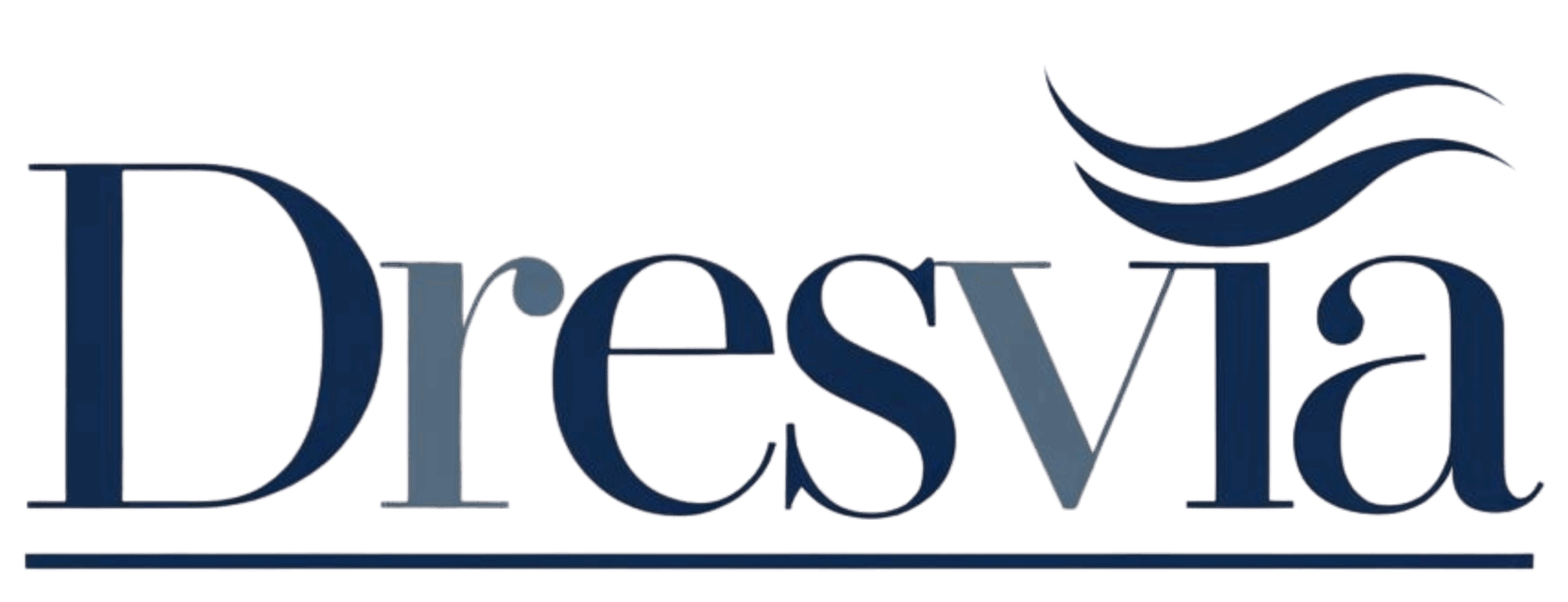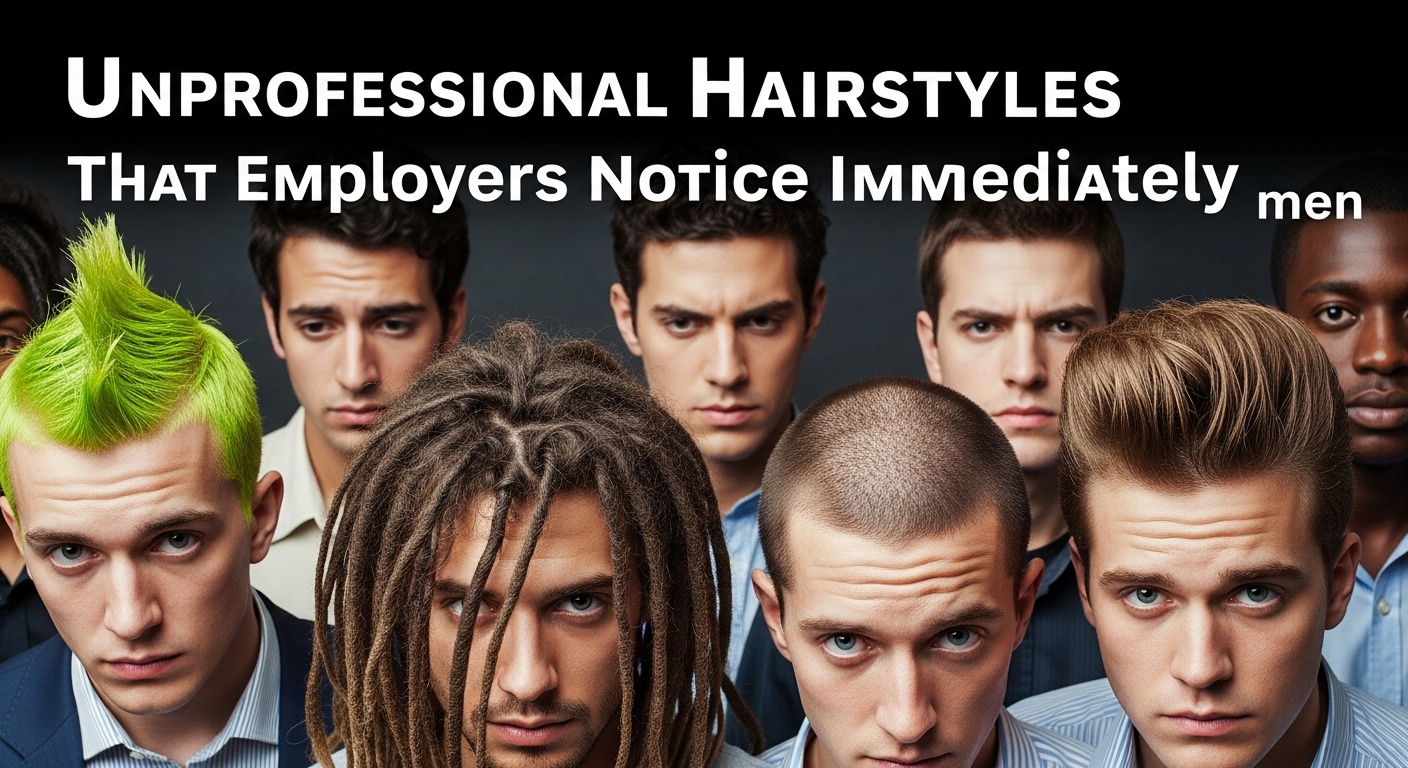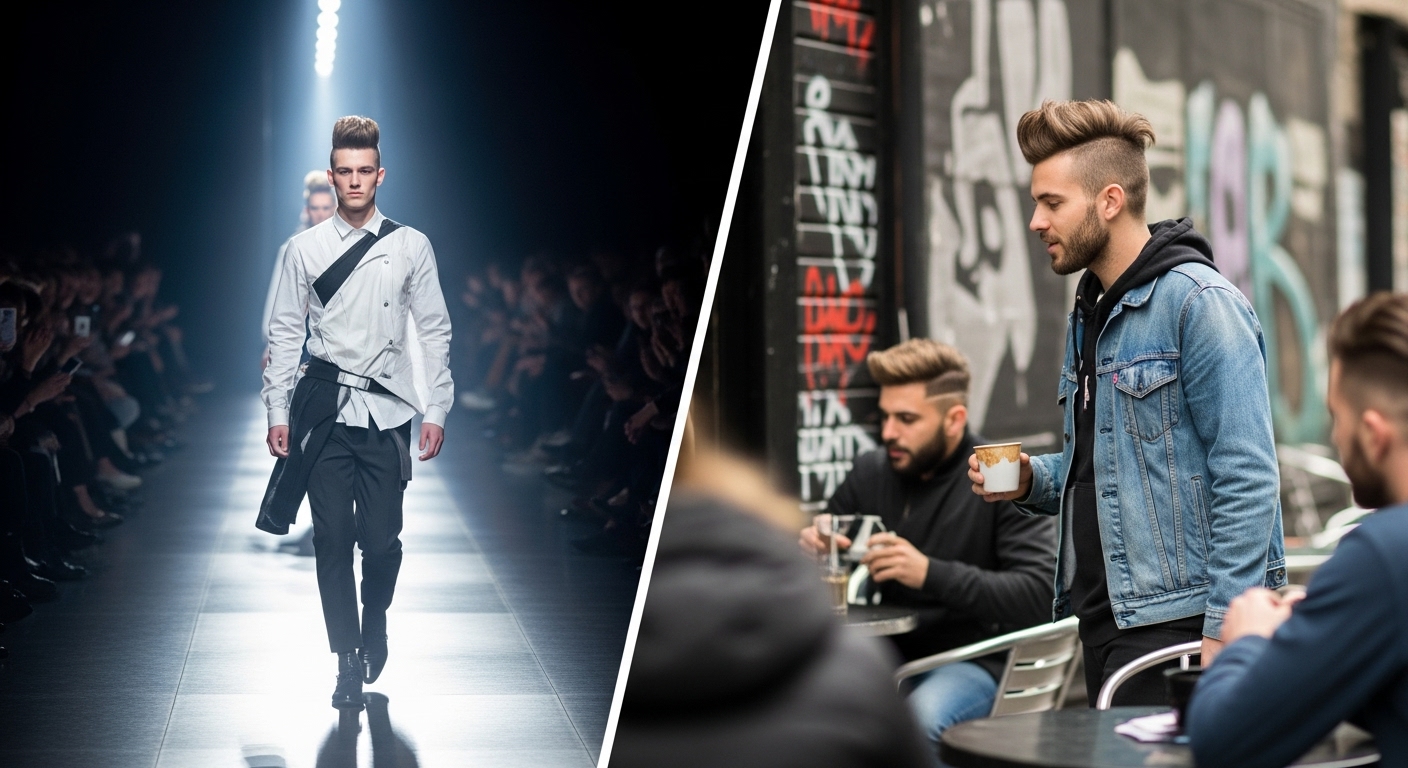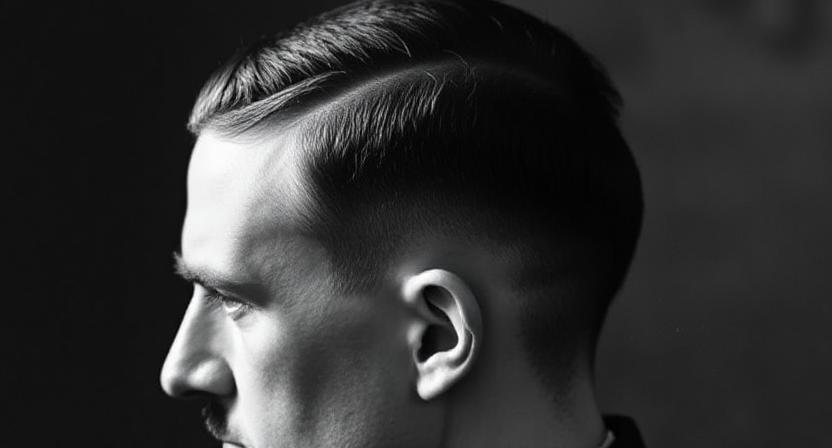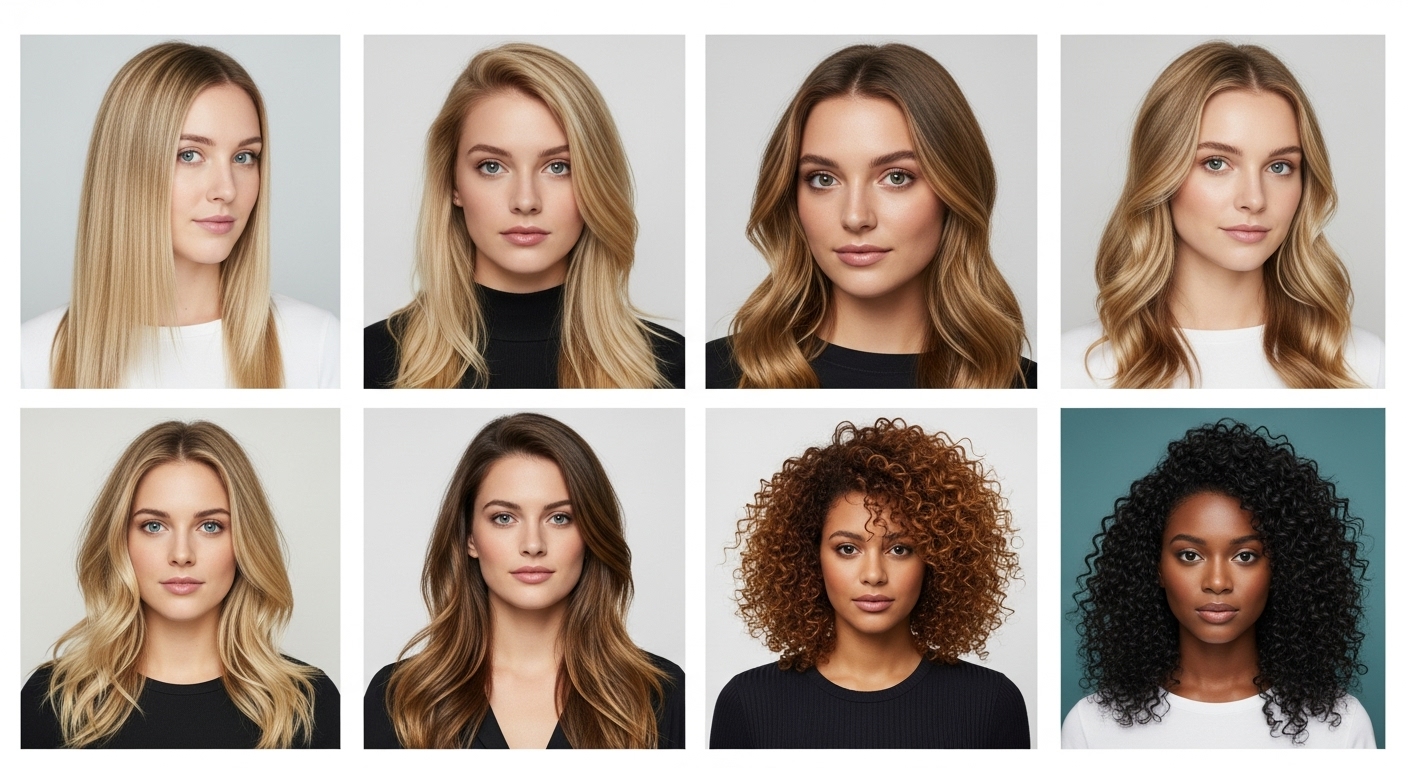There are certain things that once you go to work with them, they don’t attract attention. For example, a coffee mug, a shirt a little bit wrinkled, and perhaps even shoes that do not match your belt. But hair? That’s something absolutely different. Hair is right at the front and it is the hand that frames the face. It is very difficult to not notice it. Employers, be it that they recognize it secretly or not, always notice hairstyles at the very first sight. Some of them might look neat, well-groomed, and even neutral. However, the rest of them… are quite likely to draw one or several persons’ glance(s).
Yeah, and we are even referring to unprofessional hair styling. Those kinds that lead the managers to stop for a moment, think, and then decide whether to give you client-facing work or not. Not in an equal way. Not in a logical way. Yet, it is so.
Why Hairstyles Matter More Than People Think
The culture of a workplace comes with a set of invisible rules. Hair is completely compatible with those rules. If you have ever gone to a meeting and felt that you don’t belong there, it most likely means that your looks were at odds with the unspoken dress code. Employers are likely to connect particular styles with orderliness, trustworthiness, and working capacity.
Yes, it is stereotyping—but that’s how many organizations work. They want a “uniform image,” so appearance gets extra attention. That means not just the cut, but also the shade, finish, and how much effort you’ve put into it. A brush up hairstyle can strike that balance between individuality and professionalism.
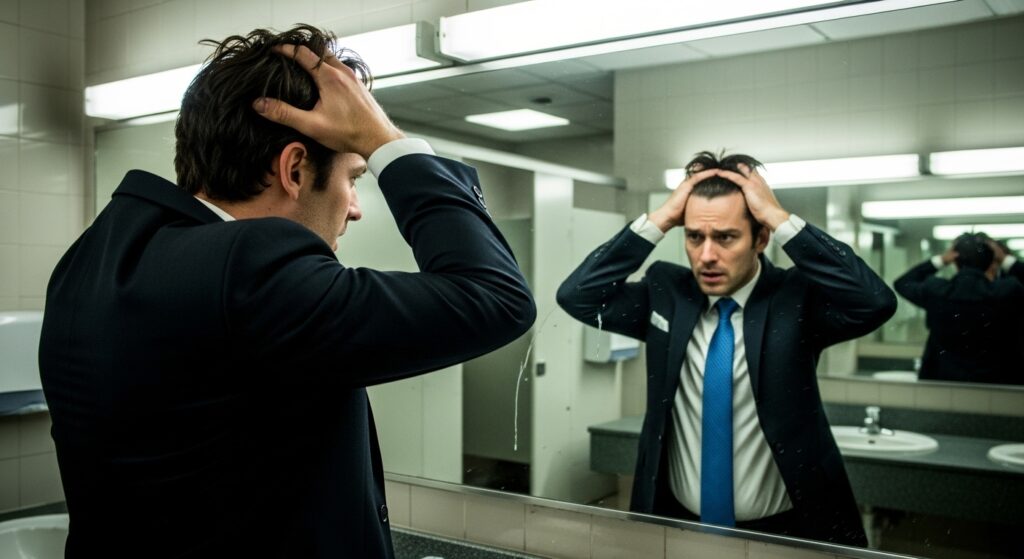
Common Unprofessional Hairstyles Employers Notice
Overly Messy or “Bedhead” Styles
There are some offices where the staff is permitted to be in casual wear. Tech startups, creative studios, maybe freelance gigs. However, messy hair in the corporate or client-facing jobs environment does not portray as a person without worries but with free-spirited nature. It shows a person who cares little about that way of life. The employers link it with the unpreparedness of the workers quite often.

Bright, Unnatural Colors
Bright blue or neon green colors might attract people’s attention in discotheques or on Instagram. But in a conservative office? They catch the attention, and not in a good way. The employers may think that it is disturbing the “serious” tone of the business.
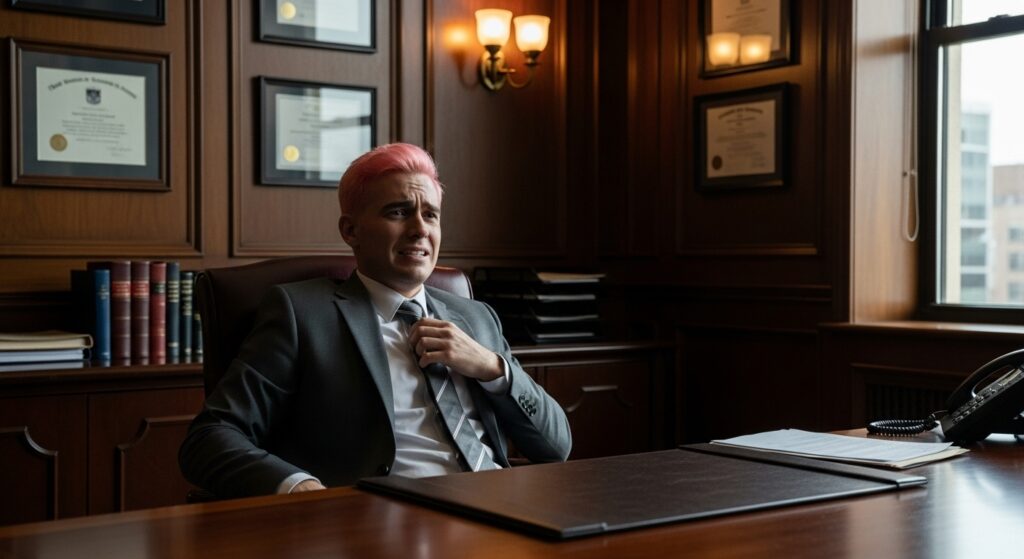
Excessive Use of Gel or Grease
Hair that appears to have been plastered down or is unnaturally shiny is one more style that employers consider suspicious. It gives a message of overdoing, or worse, lack of hygiene if it is overdone. The balance is subtle, but too much product brings unnecessary attention.
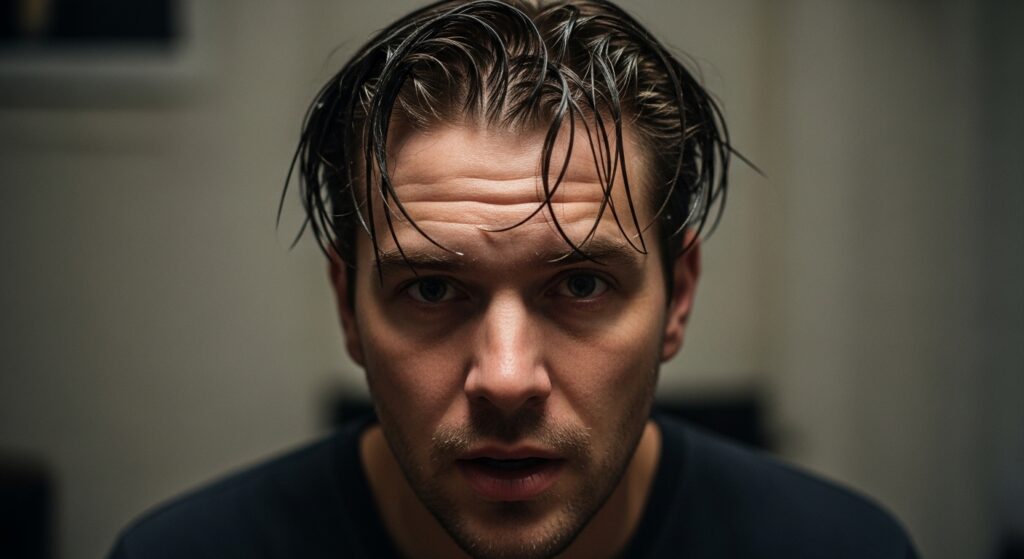
Long, Unkempt Beards and Hair
The issue of length is not the main problem. Grooming is. A long hairstyle or beard can be elegant if it is tidy. But when hair is spilling unevenly, covering the face, or it looks like it hasn’t been brushed for weeks? That’s when employers become judgemental silently.

Outdated or Extreme Cuts
Imagine mullets, mohawks, or ultra-spiked styles. Employers may perceive these as rebellious or one more reason for distraction. While some industries might be open to these, the traditional workplaces are usually not.
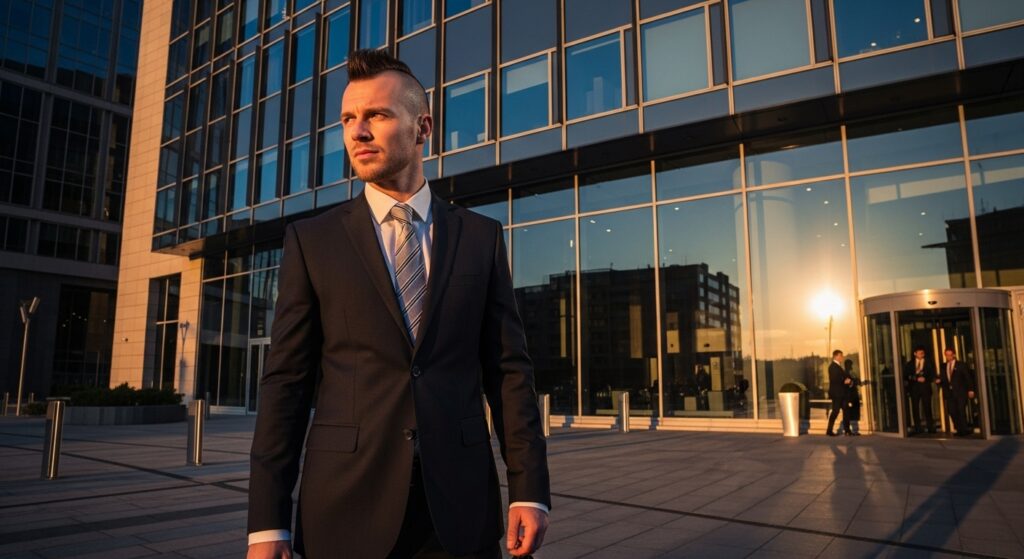
Hairstyles that Employers Routinely Notice
| Hairstyle Type | Employer Perception | Professional Fix |
|---|
| Messy “bedhead” | Careless, unprepared | Trimmed and styled |
| Bright neon colors | Distracting, unserious | Subtle highlights |
| Over-gelled slick back | Forced, greasy | Natural finish |
| Unkempt long hair/beard | Neglectful, unpolished | Regular grooming |
| Extreme cuts (mohawk) | Rebellious, not client-ready | Modern classic cut |
Grooming vs. Personality: Where’s the Line?
Employers don’t only consider the style; they try to figure out what it tells about the person. Messy might symbolize laziness. Wild colors might represent defiance. Slick might imply boastfulness. Whether those stereotypes are completely off or not, they appear.
But here is the catch: hair belongs to the realm of personal things. It is culture, character, and luxury. Nevertheless, the mentality of workplaces regarding this issue is still far from realization.

Professioanl Alternatives That Won’t Make You Lose Your Identity
- Clean fade or taper cut – sharp without looking severe.
- Trimmed beard – shows that you have a character but also that you take care of yourself.
- Natural styles, but vivid – curly, wavy, or long, just the way it is regularly shaped.
- Subtle color accents – a little edge without being over the top.
Employers generally have no problem with hairstyles that are done properly. They only query when hair that is neglected or stubbornly different from their image standard is displayed.

The Unspoken
- First impressions last only a few seconds but are very powerful ones.
- People’s hair is one of the things that catch their eyes at an instant.
- Even with different minor things in your behavior, in very strict workplaces, the result will still be the same.
It’s not about selling out—it’s about adapting. The reality is that appearance still plays a big role in how people are perceived at work. A style like the side swept undercut helps you maintain individuality while fitting into professional expectations.
Final Thoughts
For an individual, hair means so much, and in the professional world, it is somewhat a common property in a different sense. A decision is made on it by a person with a high rank in a company. Some decisions that are taken are very old, and some are very biased.
Nevertheless, if you are moving across the pool of traditional work settings, the advisement of the styles of hair is the issue that will help you move on smoothly. It is not obligatory that you totally change your looks. It is also good to do a little adjustment to avoid many barriers in your ways.
FAQs
1. What are the top hairstyles for men characterized by professionalism?
Short, neat trims like fade, crew cut, or classic taper are normally unnoticed ones.
2. Is long hair compatible with a professional image?
Definitely, if it is well-kept, clean, and does not cover the face. The most important thing is grooming rather than the length of the hair.
3. Are the reasons that overstated concerning the dismissal of an employee for his hairstyle by the employers of the company?
They probably do not say it openly, but the unprofessional hairstyles are a factor that influences the decisions of hiring or promoting the employees.
4. Is it possible to dye hair at work?
It really varies industry by industry. A creative environment might be more open to it, whereas a conservative office atmosphere might not be that enthusiastic about it.
5. How frequently should men schedule a haircut for professional environments?
Keeping your hair trim and tidy every 3 to 5 weeks is the best way to make your hair look neat and intentional.

Chris Jordan explores the world of haircuts and grooming, giving readers smart tips on finding their perfect style and using the right products. He’s especially focused on barbering trends, fade styles, and grooming tools. Chris aims to inspire confidence through clean, well-maintained, and stylish hair.
